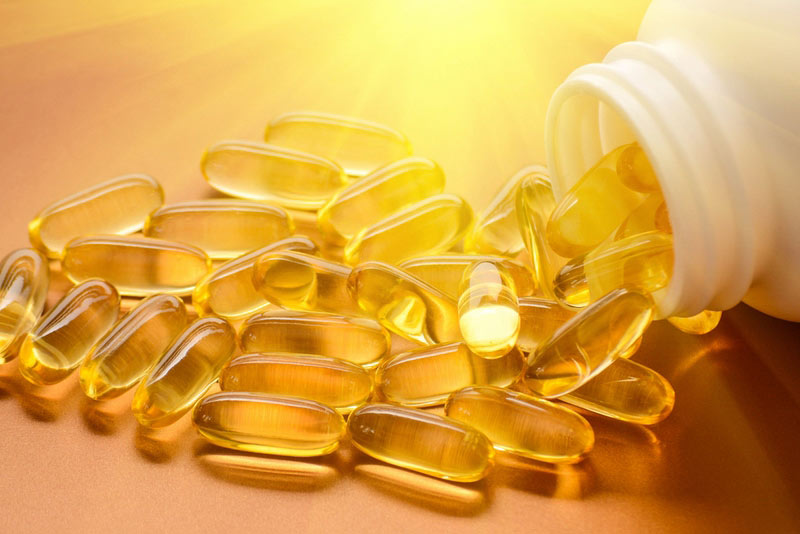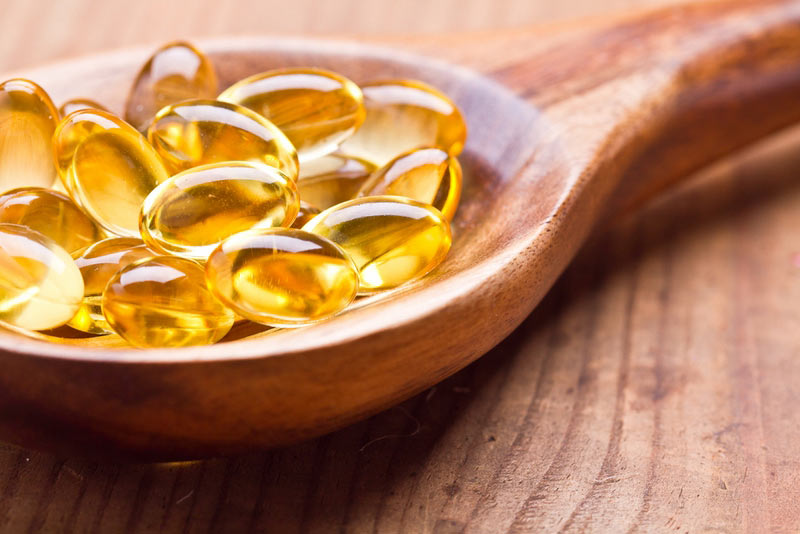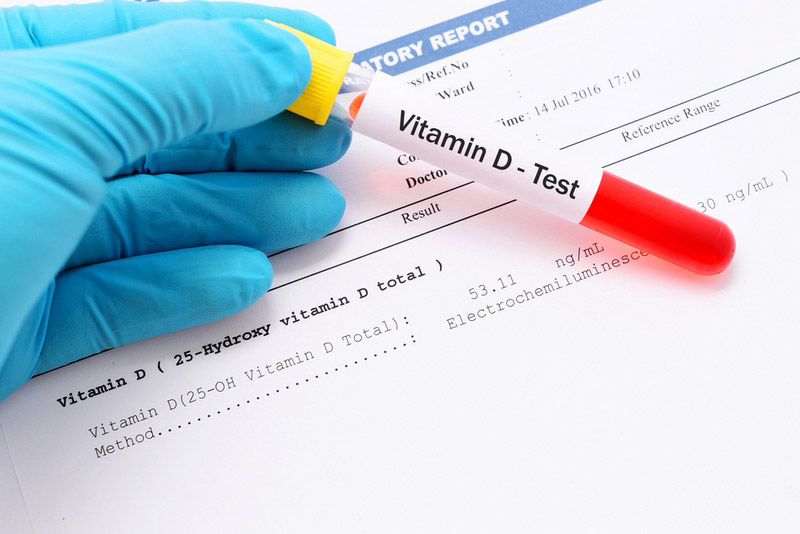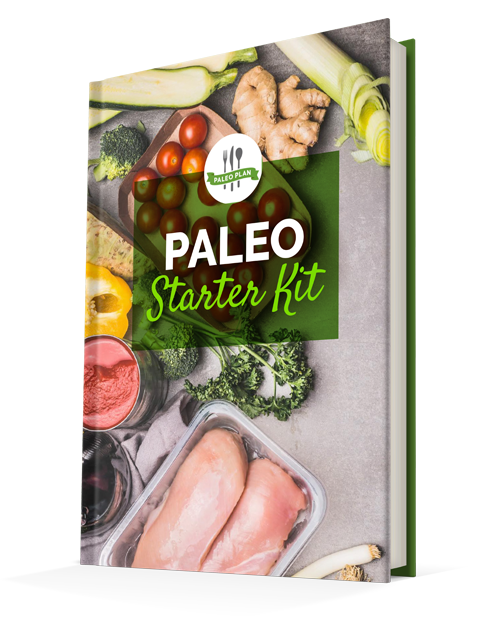
Often nicknamed the “sunshine vitamin,” you’d be surprised just how many people are deficient in vitamin D. It’s estimated that around 1 billion people worldwide have low levels, with about 41 percent of those living in the U.S. (1)
While this might not seem like a big deal, not getting enough vitamin D can create a ton of problems, and might require more time in the sun than you think.
Also, you’re potentially missing out on huge benefits if you neglect your vitamin D levels. Before we get into those benefits, let’s take a look at how vitamin D works.
What Is Vitamin D?

Despite its name, “vitamin” D is actually a hormone – and a powerful one at that. You can find vitamin D receptors in almost every cell and tissue in the human body, where it is responsible for regulating up to 200 genes. (2)
The reason you may have heard vitamin D referred to as the “sunshine vitamin” is because vitamin D is synthesized from cholesterol when your skin is exposed to sunlight.
Vitamin D2 vs. D3
There are two types of vitamin D: D3, or cholecalciferol, and D2, or ergocalciferol.
D3 is the natural form of vitamin D that is produced by your body when your skin is exposed to sunlight. It is the most biologically active form of vitamin D, meaning that it has superior absorption and is the type preferred by your body (3). D3 is also found in wild fatty fish like salmon and sardines.
D2, on the other hand, is produced by irradiating the yeast sterol ergosterol, as well as in sun-exposed mushrooms. This is the type you’re most likely seeing added to your fortified non-dairy milks and other packaged products. Humans do not produce vitamin D2, and research shows it is less readily absorbed than D3. (4)
9 Health Benefits of Vitamin D
The benefits of vitamin D are nearly endless, considering that it is involved in so many important biological functions. From cancer prevention to DNA repair, this gift from the sun might be your answer to a number of pesky symptoms.
Read on to discover the surprising benefits of vitamin D, as well as how to get enough of it.
1. Fights Cancer
Getting some daily sunshine could play a huge role in preventing and fighting cancer. Multiple studies show that vitamin D decreases cell proliferation and has potent anti-inflammatory effects – important factors in the development of cancers.
Several studies also show links between low vitamin D levels and the onset of cancer, with one revealing that participants with high vitamin D levels were half as likely to be diagnosed with colon cancer as those with low levels. (5)
2. Boosts Immunity

Vitamin D plays a critical role in keeping your immune system running strong and preventing viral and bacterial infections. One study showed that children given a daily vitamin D supplement of 1,200 IU had a 40 percent lower rate of influenza compared with those given a placebo. Another study showed vitamin D deficiency was associated with a three-fold risk of pregnant women developing bacterial vaginosis. (6)
3. Lowers Cardiovascular Disease Risk
Not only is getting enough vitamin D essential for maintaining heart health, but a lack of it can create serious heart issues. Research shows that vitamin D deficiency is linked to an increased risk of developing cardiovascular diseases, including hypertension, heart failure, and ischemic heart disease. Luckily, spending some time in the sunshine can help the walls of your blood vessels expand and contract easily, reducing your risk of heart problems. (7)
4. Helps Prevent Autoimmune Diseases

For many years, most people assumed autoimmune diseases were due to bad genes or bad luck. New research shows the opposite, especially where vitamin D is concerned. One study found that participants with the highest vitamin D concentrations had a 62 percent lower risk of developing multiple sclerosis (MS) compared to those with the lowest concentrations. Another study found that children given vitamin D supplements as infants had a 90 percent lower risk of developing type 1 diabetes compared to children who were not given supplements. (8)
5. Fights Infections
Vitamin D also helps prevent a wide range of infections by improving your body’s ability to block out harmful bacteria and by bolstering the immune system. Research shows it to be beneficial in the prevention and treatment of tuberculosis, psoriasis, eczema, chest infections, wound infections, influenza, urinary tract infections, and even eye infections. (9)
6. Repairs DNA

The ability of our DNA to repair itself is crucial for aging well and reducing the chances of developing diseases like cancer. Vitamin D helps prevents oxidative damage (which is damage done to DNA by things like environmental pollution, a bad diet, and stress) by aiding in repair.
In addition, it also regulates cell cycles so that they don’t proliferate and become cancerous. (10)
7. Improves Bone Health
Adequate vitamin D is necessary for your body to be able to absorb calcium from your digestive tract. Even supplementing with just 800 IU per day (less than the recommended dosage) can reduce hip and nonspinal fractures by about 20 percent. On the flip side, studies show that low vitamin D concentrations are associated with an increased risk of fractures and falls in older adults. (11)
8. Improves Fertility

Before you look to expensive fertility treatments when trying to conceive, make sure your vitamin D levels are optimized. Studies show that vitamin D plays a large role in fertility, increasing levels of progesterone and estrogen in women while improving semen quality and sperm count in men. In addition, studies confirm that sperm has a vitamin D receptor, which shows the importance of the vitamin when it comes to healthy sperm. (12)
9. Improves Muscle Strength
Interestingly, vitamin D also helps increase muscle strength. Of course, while it won’t grow your muscles for you, it can improve neuromuscular function and stability. This is good news for the elderly, as adequate vitamin D is correlated with less falls and fractures. (13)
Signs of Vitamin D Deficiency

Two of the most common symptoms of vitamin D deficiency are chronic fatigue and widespread aches and pain throughout your muscles and joints. However, there are a few other symptoms, including:
- Frequent infections and catching colds often
- Back pain
- Depression
- Slow or impaired wound healing
- Bone loss
- Hair loss
Less than 30 ng/ml (nanograms per milliliter) is considered a deficiency, although some experts advise aiming for at least 50 ng/ml. If you have any doubts, be sure to get tested.
How to Get Adequate Vitamin D
According to the Vitamin D Council, 15 minutes of direct sun exposure from noon to 3 p.m. is enough for a fair-skinned person during the summer to produce 10,000 to 25,000 units. However, during the winter in northern latitudes such as Boston, you might need one to two hours of exposure at noon to synthesize enough vitamin D.
In general, the recommendations are to stay out for half the amount of time it would take you to burn, which might be longer if you have a darker skin tone. If you’re extra curious as to how much vitamin D you’re producing based on your skin tone and geography, an app called DMinder can also help you track it.
Supplements and Foods for Vitamin D

Another option is to supplement with 3,000 to 5,000 IU per day of raw D3. Alongside this, you can also consume foods high in vitamin D, which include:
- Wild-caught fatty fish (salmon, sardines, mackerel)
- Cod liver oil
- Pasture-raised eggs
- Wild mushrooms
Combining daily sun exposure with these vitamin D-rich foods will ensure you’re getting all the benefits of this amazing vitamin. Again, if you’re experiencing any of the symptoms listed above, be sure to get your levels tested. After that, look forward to your daily mini-vacation of sunshine, knowing you’re doing your body good.

